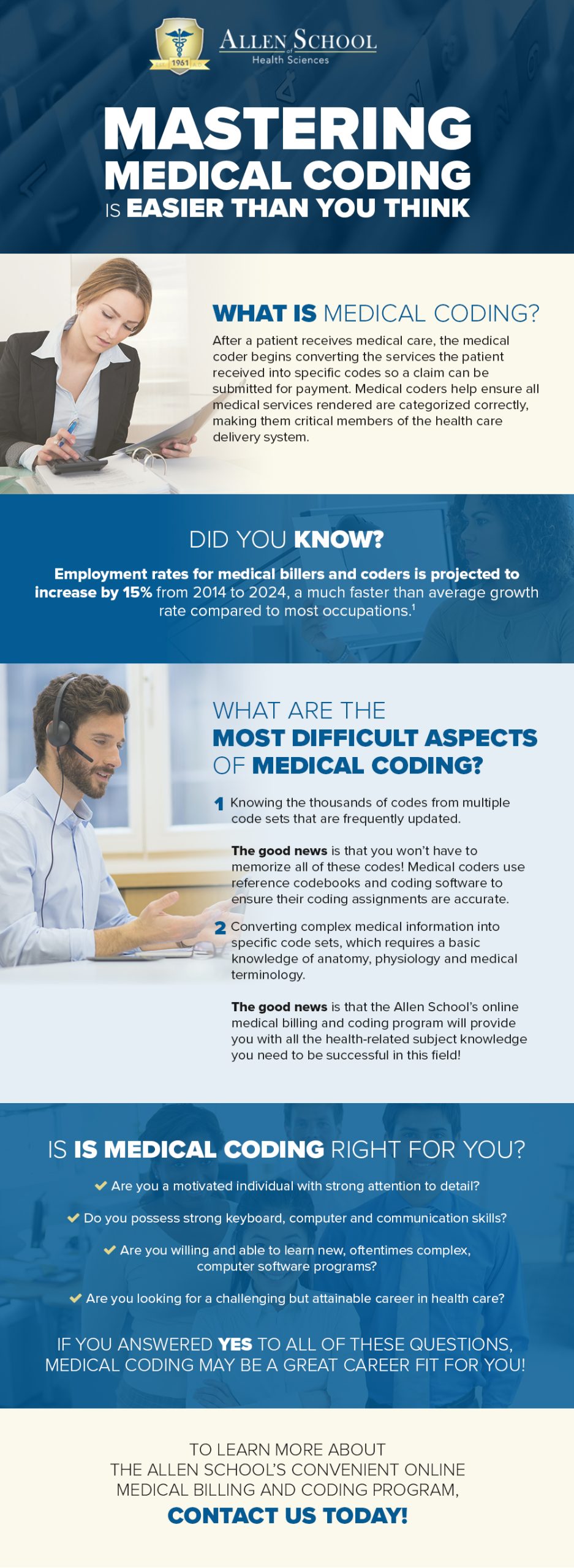Introduction
In the world of healthcare, medical coders play a vital role in ensuring accurate and efficient medical billing processes. It is important to understand the responsibilities and scope of this profession if you are looking to pursue a career in medical coding or simply want to have a better understanding of how medical fees are determined.
Definition of medical coding
Medical coding involves the conversion of medical services, diagnoses, and procedures into universal codes that are used for billing and insurance purposes. Coders are responsible for assigning these codes accurately based on the documentation provided by healthcare providers.
Importance of accurate medical coding
Accurate medical coding is crucial for several reasons. Firstly, it ensures that healthcare providers are reimbursed correctly for the services they provide. Additionally, it helps in the identification and prevention of healthcare fraud and abuse. Moreover, proper coding facilitates data analysis and research, leading to improved patient care and healthcare policies.
Overview of the role of medical coders
Medical coders are the professionals who analyze medical documentation and assign the appropriate codes using various coding systems, such as the International Classification of Diseases (ICD) and the Current Procedural Terminology (CPT). They must have a solid understanding of anatomy, medical terminology, and coding guidelines to accurately translate the information into codes.
Scope of medical coding in the healthcare industry
The demand for skilled medical coders is rapidly increasing due to the expansion of the healthcare industry and the emphasis on electronic health records. Medical coders can find employment opportunities in various healthcare settings, including hospitals, physician offices, insurance companies, and consulting firms. This profession offers stability, competitive salaries, and opportunities for growth and advancement.
By understanding the role of medical coders, you can gain valuable insights into the behind-the-scenes workings of the healthcare industry and how medical fees are determined. Whether you are interested in pursuing a career in medical coding or simply want to have a better understanding of this important role, this information will serve as a helpful guide.
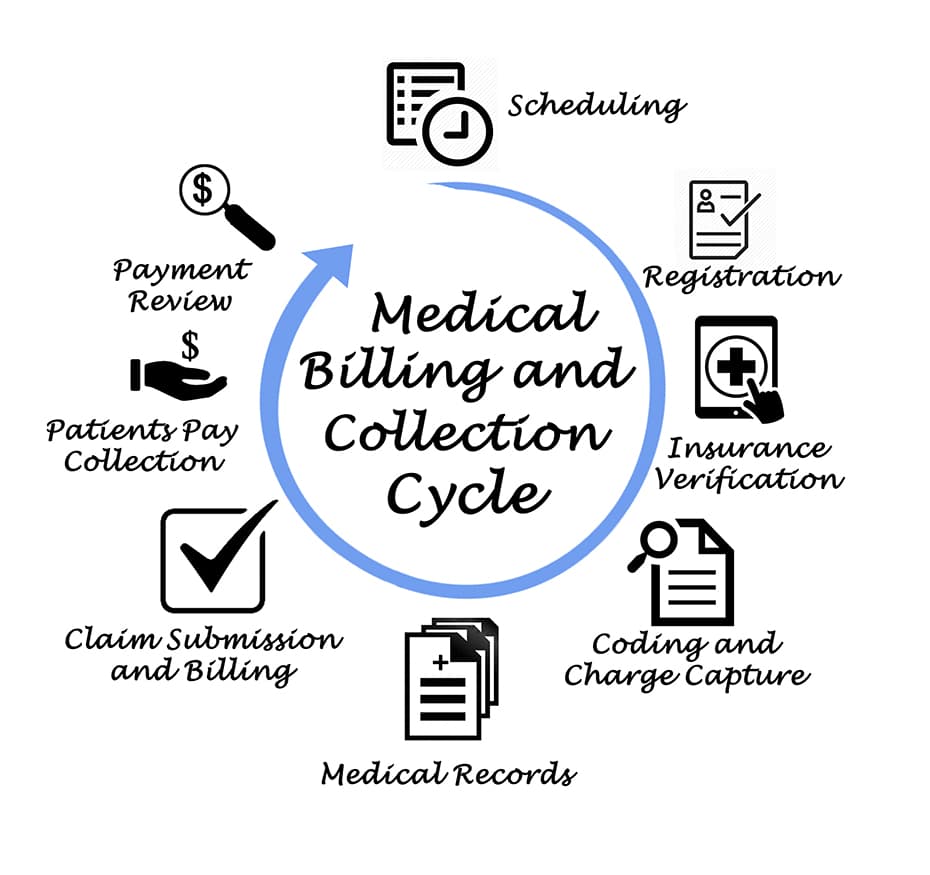
This image is property of www.arizonacollege.edu.
Educational Requirements
To become a medical coder, there are certain educational requirements you need to fulfill. Certification and training programs are essential for acquiring the necessary knowledge and skills in this field. These programs are typically offered by vocational schools, community colleges, and online platforms. They equip you with the fundamentals of medical coding, including understanding coding systems such as ICD-10, CPT, and HCPCS.
A solid foundation in medical terminology and anatomy is also crucial for effective medical coding. You will need to familiarize yourself with various medical terms, acronyms, and body systems to accurately assign codes to diagnoses and procedures. This knowledge allows you to communicate effectively with healthcare professionals and accurately translate medical records into codes.
Medical coding is a dynamic field that is continuously evolving. Therefore, continuing education is vital for medical coders to stay updated with the latest coding regulations, industry trends, and advancements. Ongoing learning and professional development opportunities are available through workshops, conferences, and online resources. By investing in continuing education, you can enhance your skills and advance your career in medical coding.
By meeting these educational requirements, you will be well-prepared to take on the role of a medical coder and contribute to the efficient management of medical claims and billing processes.
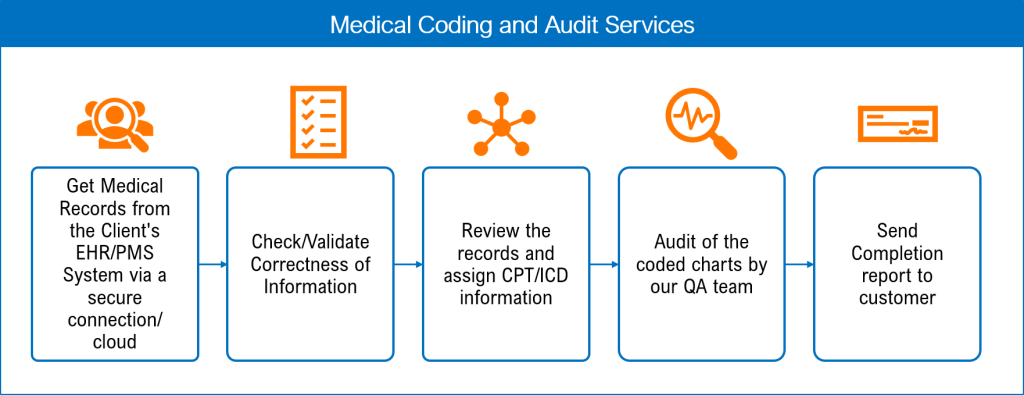
This image is property of images.squarespace-cdn.com.
Understanding the Role of Medical Coders
Have you ever wondered what medical coders do? They play a crucial role in the healthcare industry, ensuring that all medical procedures and diagnoses are accurately coded. This ensures that healthcare providers receive proper reimbursement for their services and that patient records are well-maintained. In this article, we will provide you with a comprehensive understanding of the responsibilities of medical coders.
Responsibilities of Medical Coders
Reviewing medical records and documentation
One of the main responsibilities of medical coders is to carefully review medical records and documentation to extract relevant information. They analyze physician notes, lab reports, and other clinical documents to gain a comprehensive understanding of the patient’s condition and the procedures performed.
Assigning appropriate codes for diagnoses and procedures
After reviewing the medical records, medical coders use their expertise to assign appropriate codes for each diagnosis and procedure. These codes are essential for billing purposes and ensure that healthcare providers are reimbursed accurately by insurance companies.
Ensuring accuracy and compliance with coding guidelines
Medical coders must ensure that their coding work adheres to the specific coding guidelines and standards set by regulatory bodies. They also need to stay updated with the latest changes and revisions in coding practices to maintain accuracy and compliance.
Collaborating with healthcare professionals for clarifications
In certain cases, medical coders may need to collaborate with healthcare professionals to obtain further clarification about specific medical procedures or diagnoses. This collaboration ensures that the codes assigned are accurate and reflect the true nature of the patient’s condition.
medical coders play a vital role in the healthcare industry by reviewing medical records, assigning appropriate codes, ensuring accuracy, and collaborating with healthcare professionals. Their efforts contribute to the smooth operation of healthcare facilities and the maintenance of accurate patient records.
Importance of Medical Coding
Medical coding plays a crucial role in the healthcare industry by ensuring accurate and efficient communication between healthcare providers, insurance companies, and government agencies. As a medical coder, your primary responsibility is to translate medical procedures, diagnoses, and other healthcare services into universally recognized codes. These codes serve as a common language that allows the information to be accurately recorded and shared.
Facilitating accurate and timely reimbursement
One of the key functions of medical coding is to facilitate the reimbursement process. By assigning the appropriate codes to each medical service provided, you ensure that healthcare providers receive the correct payment for their services. Accurate coding also helps in minimizing claim denials and delays, ensuring timely and efficient reimbursement.
Supporting research and statistical analysis
Medical coding also supports research and statistical analysis in the healthcare industry. By accurately coding patient data, researchers and healthcare analysts can access reliable and standardized information to identify trends, evaluate treatment outcomes, and study disease patterns. This data is critical for developing evidence-based medicine and improving overall healthcare quality.
Ensuring proper patient care and treatment
Accurate coding is essential for ensuring proper patient care and treatment. By coding all the services and procedures provided, medical coders help create a comprehensive and detailed patient record. This record is used by healthcare providers to make informed decisions about patient care, track treatment progress, and ensure continuity of care.
Preventing healthcare fraud and abuse
Another important role of medical coding is to help prevent healthcare fraud and abuse. By following strict coding guidelines and regulations, medical coders ensure that healthcare services are accurately documented and billed. This helps detect and prevent fraudulent activities, such as upcoding or billing for services not provided, which ultimately protects patients, insurance companies, and the healthcare industry as a whole.
medical coding is an important and multifaceted role that supports accurate reimbursement, research, patient care, and fraud prevention in the healthcare industry. As you navigate the complex world of medical billing and insurance, it’s important to understand the role of medical coders. These professionals play a crucial role in the healthcare industry by assigning specific codes to medical procedures, diagnoses, and treatments. These codes facilitate accurate reimbursement from insurance companies and regulatory compliance.
Challenges in Medical Coding
Keeping up with frequent code updates
One of the major challenges that medical coders face is keeping up with the frequent updates to medical codes. New codes are constantly being introduced, and existing codes are revised or retired. Staying updated requires continuous education and learning to ensure accurate and compliant coding.
Dealing with complex and ambiguous documentation
Medical coders often encounter complex and sometimes ambiguous documentation from healthcare providers. They must decipher and interpret medical records, lab results, and other relevant documentation to accurately assign the appropriate codes. Attention to detail and an understanding of medical terminology are crucial in this process.
Navigating insurance policies and requirements
Understanding insurance policies and requirements can be overwhelming, especially since they vary from one insurance company to another. Medical coders must have a deep understanding of these policies to ensure that the codes they assign align with the specific requirements of each insurance provider.
Managing high work volume and tight deadlines
Medical coding is a demanding field, with high work volume and tight deadlines. Medical coders often work under pressure to meet deadlines and handle a large number of medical records each day. This requires excellent time management, organizational skills, and the ability to work efficiently while maintaining accuracy.
medical coders play a vital role in the healthcare industry by assigning accurate codes that ensure proper reimbursement and compliance. However, they face challenges such as keeping up with code updates, dealing with complex documentation, navigating insurance policies, and managing high work volume and tight deadlines.
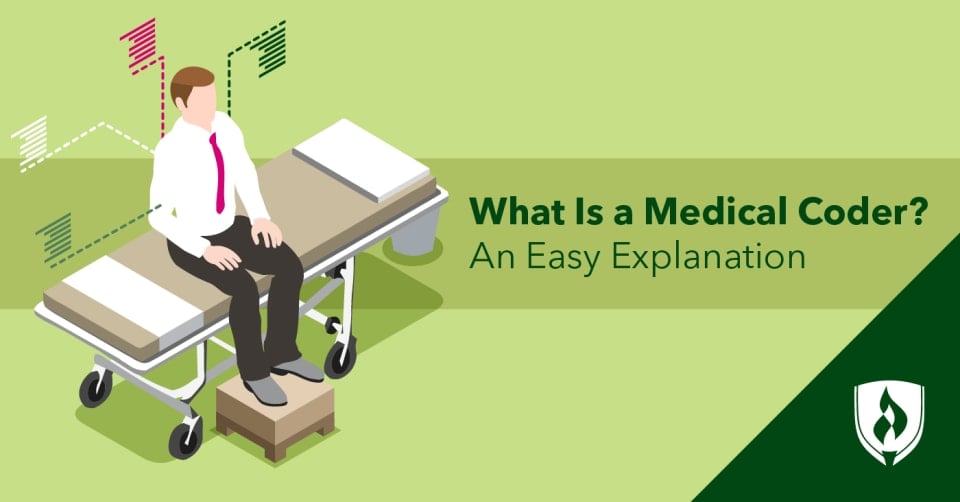
This image is property of www.rasmussen.edu.
If you’ve ever wondered what medical coders do, you’ve come to the right place! Medical coders play a crucial role in the healthcare industry, ensuring that accurate and consistent codes are assigned to medical diagnoses, procedures, and services. This is important for a variety of reasons, including proper reimbursement from insurance companies, tracking of public health trends, and research. In this informational post, we will delve into the role of medical coders, with a particular focus on the use of technology in their daily tasks.
Technology in Medical Coding
Use of coding software and electronic health records (EHR)
Medical coders rely heavily on coding software and electronic health records (EHR) systems, which streamline the coding process and make it more efficient. This software not only allows coders to access patient information easily, but it also suggests appropriate codes based on the documentation provided by healthcare professionals.
Automation and artificial intelligence in coding processes
Advancements in technology have brought automation and artificial intelligence into the coding world. Automated coding tools can analyze medical records and generate suggested codes, which can significantly speed up the coding process and minimize errors.
Integration with other healthcare systems and processes
Medical coders are also responsible for integrating coding with other healthcare systems and processes, such as billing and compliance. This ensures that claims are properly coded and submitted in a timely manner, leading to faster reimbursement and a smoother revenue cycle.
Role of medical coders in utilizing technology effectively
While technology plays a vital role in medical coding, the expertise and knowledge of medical coders are equally important. Coders must ensure that the codes assigned are accurate, compliant, and reflect the true nature of the patient encounter. They also need to stay updated with the latest coding guidelines and regulations.
medical coders are essential in the healthcare industry, and technology has revolutionized the way they perform their duties. By utilizing coding software, EHR systems, automation, and artificial intelligence, medical coders can effectively assign accurate codes and contribute to the overall efficiency of healthcare systems.
Whether you’re just starting your career or considering a switch, understanding the role of medical coders opens up a world of opportunity in the healthcare industry. Medical coders play a crucial role in accurately translating medical documentation into standardized codes. These codes are used for a variety of reasons, including billing, reimbursement, and statistical analysis.
Career Opportunities
Working as a medical coder can take you down several exciting career paths. One option is to work in hospitals, clinics, and other healthcare facilities. In these settings, you’ll collaborate with healthcare professionals to ensure that medical records accurately reflect the services provided. Another option is employment in insurance companies and billing departments, where your coding expertise will be vital in ensuring accurate reimbursement claims.
Potential for remote and freelance coding work
Thanks to technological advancements, medical coding has also opened up opportunities for remote and freelance work. With specialized software and secure internet connections, you can work from the comfort of your own home, providing coding services to various healthcare organizations. This flexibility allows for a better work-life balance and the ability to adapt your schedule to fit your needs.
Advancement opportunities in coding and healthcare management
Medical coding can be a stepping stone to advancement opportunities in both coding and healthcare management. With experience and additional certifications, you can progress to roles such as coding supervisor, compliance officer, or even healthcare administrator. The skills and knowledge gained as a medical coder lay a solid foundation for navigating the complex world of healthcare regulations and managing a team effectively.
the role of medical coders is a critical component of the healthcare industry. From working in hospitals and clinics to remote coding positions, the diverse career opportunities offer flexibility and room for advancement. If you have a keen eye for detail, strong analytical skills, and a passion for the healthcare field, a career in medical coding may be the perfect fit for you.
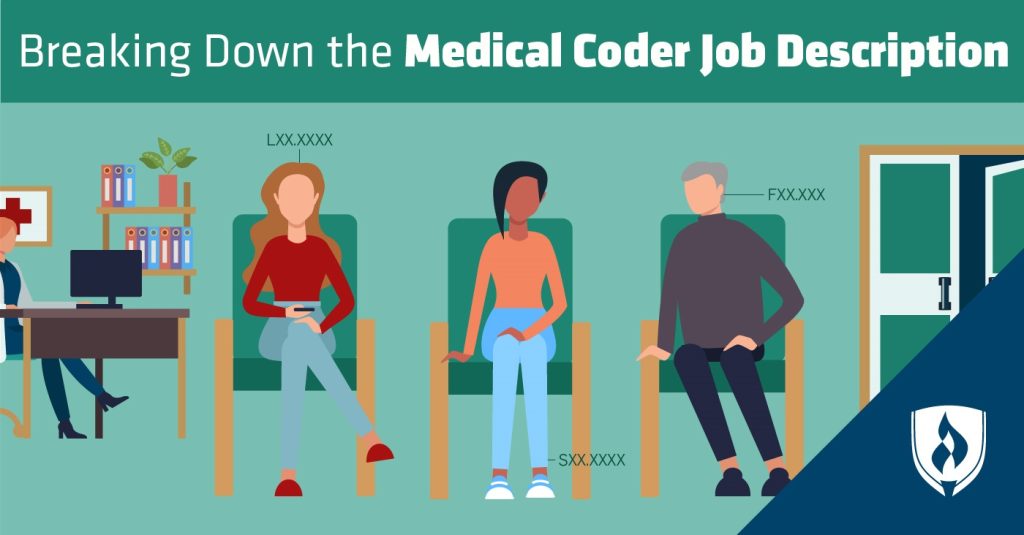
This image is property of www.rasmussen.edu.
Conclusion
In conclusion, medical coders play a crucial role in the healthcare industry by ensuring accurate and timely coding of medical procedures and diagnoses. Their work is significant not only in terms of reimbursement but also for maintaining seamless healthcare operations. The ongoing importance and demand for skilled medical coders cannot be overstated.
Summary of the role and significance of medical coders
Medical coders are responsible for translating medical records into a standardized code format. This coding allows healthcare providers to bill accurately for their services and ensures that patients receive appropriate insurance coverage. The role of medical coders is vital in ensuring that healthcare reimbursement is carried out efficiently and effectively.
Ongoing importance and demand for skilled medical coders
With the continued growth of the healthcare industry and evolving medical coding guidelines, the demand for skilled medical coders remains high. The complexity of medical codes and the need for accuracy necessitate the expertise of trained professionals. As a result, skilled medical coders can expect to have excellent job prospects and opportunities for advancement.
Continuous learning and adaptation in the field of medical coding
The field of medical coding is constantly evolving, with regular updates to coding guidelines and regulations. Medical coders must stay current with these changes and engage in continuous learning to maintain their skills. It is essential for medical coders to adapt to technological advancements and software updates to ensure efficiency and accuracy in their work.
Appreciation of the contributions made by medical coders
Given the critical role they play in the healthcare system, medical coders deserve recognition and appreciation for their contributions. Their work directly impacts patient care, reimbursement processes, and the overall functioning of healthcare facilities. Without the diligent efforts of medical coders, healthcare providers would face challenges in navigating complex coding systems and accurately billing insurance companies.
Overall, gaining a clear understanding of the role of medical coders is essential for both healthcare providers and patients alike. By appreciating the significance of their contributions, we can ensure that medical coders are valued for their expertise and dedicated service to the healthcare industry.
